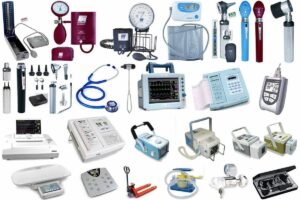Laboratory ovens are like the unsung heroes of scientific research. These specialized heating appliances play a pivotal role in numerous industries, from pharmaceuticals and biology to materials science and beyond. In this comprehensive guide, we will embark on a journey to explore the fascinating world of Laboratory Oven. We’ll delve into their various types, applications, and the crucial role they play in maintaining controlled environments for experiments. Whether you’re a seasoned researcher or simply curious about the world of science, join us as we uncover the secrets behind these precision instruments.
Types of Laboratory Ovens:
- Gravity Convection Ovens: Gravity convection ovens are the workhorses of many laboratories. They rely on the principle of natural convection, where air circulates due to temperature differences. These ovens are ideal for drying glassware, heating samples, and performing general-purpose tasks.
- Mechanical Convection Ovens: Mechanical convection ovens take precision to the next level. They feature fans that ensure uniform temperature distribution throughout the oven, making them perfect for applications where consistency is crucial.
- Vacuum Ovens: Vacuum ovens are essential in industries where precise control of temperature and pressure is necessary. These ovens are commonly used for processes like drying sensitive materials or degassing samples.
- Muffle Ovens: Muffle ovens are designed to heat samples indirectly. They have a separate heating element, ensuring that the sample is not contaminated by direct contact with the heating source. They are commonly used for washing and heat treatment processes.
- Inert Gas Ovens: Inert gas ovens are used when an oxygen-free environment is required. They are crucial in processes like heat treating metals and preventing oxidation of sensitive materials.
Applications of Laboratory Ovens:
The versatility of ovens in Laboratory Equipment Supplier is evident in the wide range of applications they serve:
- Research and Development: Laboratory ovens are indispensable in R&D labs across various industries. They are used for drying, curing, and aging tests, ensuring the development of high-quality products.
- Pharmaceutical Industry: In pharmaceuticals, ovens play a critical role in sterilizing equipment and drying pharmaceutical compounds. This is essential for maintaining the safety and efficacy of medications.
- Biotechnology: Biotech labs rely on ovens for tasks such as DNA and RNA hybridization, as well as incubating cultures. These ovens create optimal conditions for the growth of microorganisms and cell cultures.
- Materials Science: Ovens are used for heat treatment of materials, such as annealing and tempering metals. They also facilitate controlled polymerization reactions in the production of plastics.
- Food Industry: In the food industry, ovens are used for drying, baking, and dehydrating food products. They ensure food safety by eliminating pathogens and preserving the quality of food items.
- Environmental Testing: Ovens are used to simulate environmental conditions for testing the durability of materials, such as automotive components subjected to extreme heat.
- Aerospace Industry: Aerospace manufacturers use ovens to cure composite materials used in aircraft construction. These ovens ensure the integrity and strength of aircraft components.
Importance of Precise Temperature Control:
One of the key reasons laboratory ovens are indispensable is their ability to provide precise temperature control. In scientific research, even minor temperature fluctuations can have a significant impact on the outcome of experiments. Laboratory ovens offer the following benefits:
- Reproducibility: Precise temperature control ensures that experiments can be replicated accurately, leading to reliable results.
- Consistency: Maintaining a constant temperature throughout an experiment is vital for the success of many scientific processes.
- Data Integrity: Accurate temperature control ensures that data collected during experiments is meaningful and can be used for analysis.
- Safety: In some cases, working with specific temperatures is essential for safety, preventing reactions that could be hazardous at higher temperatures.
Conclusion:
In the world of scientific research and industrial applications, laboratory ovens are unsung heroes that quietly play a vital role. Their ability to provide precise temperature control and controlled environments has made them an indispensable tool for researchers and professionals in various fields. Whether it’s pharmaceuticals, biotechnology, materials science, or any other discipline, laboratory ovens continue to drive innovation and facilitate discoveries. As we conclude our journey into the world of laboratory ovens, we hope you’ve gained a deeper appreciation for these precision instruments that silently support the advancement of science and technology.




